Empower’s Africa Program Director Frank Michael Tweheyo, alongside Empower Minister Purity Njagi, recently led a Master Class at St. Paul’s University in Limuru, Kenya. Our ongoing partnership with the university’s Institute of Lifelong Learning and Leadership Development Centre (SPILL) has led to countless lives being changed. The Master Class is for those who have been through New Man, New Woman, New Life previously. It takes participants through a deeper dive into the content with the goal of supporting their efforts to teach the material to others. Here is Frank’s report, edited for length and clarity.
Each of the ten participants in the St. Paul’s Master Class reported on exciting results which have unfolded since they participated in the NMNWNL seminar previously. We had several participants from seminars way back in 2022, as well as one participant, Joyce Wairimu, from the outreach of one couple who did Master Class two years ago and have been teaching their people at church through the NMNWNL manual.

It was a small but very lively and engaging group, so it was fulfilling to be with them. I saw the participants learning from one another as they shared their stories.
What participants learned in seminars and what they are doing with the material
Denis, a 19-year-old and a very engaging young man, told us he was blessed by the timelessness of the Word of God. He realized that as the Bible spoke to circumstances of the time in which it was written, yet the Word of God still relevantly speaks to the challenges of our day. He is happy that his mindset has been changed and will help many along the way.
He shared that in a youth group he was recently facilitating, the 31 youth in that group were shocked to find out that the man was in the garden (“When the woman saw that the fruit of the tree was good for food and pleasing to the eye, and also desirable for gaining wisdom, she took some and ate it. She also gave some to her husband, who was with her, and he ate it.” Genesis 3:6.) He became some sort of a hero because he was able to point out something that was always in the Bible and always being overlooked.
He was also blessed by Ephesians 6:1-4, which focuses on the relationship between children and their parents. He pointed out that some parents destroy the self-esteem of their children by abusing them and calling them names, which is apparently common in his culture. He was shocked to learn that mutuality applies not only to men and women but to all family members. That passage reminds children that they are to obey their parents, but also, parents are warned “not to exasperate” their children. In his context, this means parents should not enforce the cultural status quo but to treat their children with understanding. He said the training helped him to stop reading the Bible using cultural lenses.
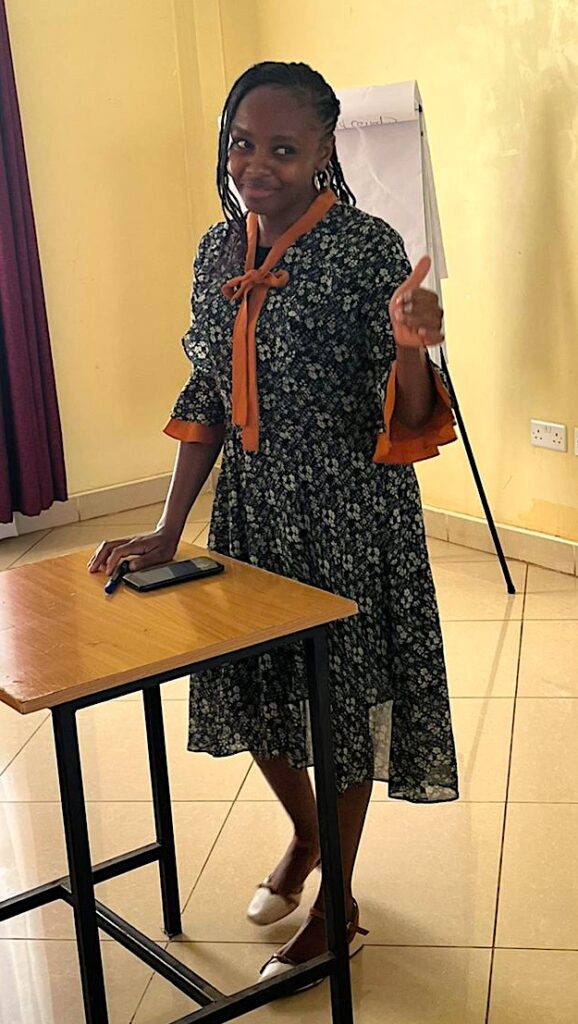
Joyce Geima, a psychologist by training, is using the knowledge she learned by contextualizing it into her profession. Many of her clients are women with culturally-related problems which were well-covered in the NMNWNL material. Joyce told us that she is a victim of stigmatization. Her father never wanted her to go to school, so she worked her way to college by self-supporting. This gave her impetus to fight for others. This cultural belief against educating women keeps many from reaching their full potential, and also causes them to suffer from low self-esteem. She told us the NMNWNL teaching helped free her from a poor self-image, and indeed empowered her to help others with a more informed scope of knowledge.
Rev. John Ole Musokoni, an Anglican Church Of Kenya (ACK) priest, is using small portions of the manual to preach and do premarital and marital counseling. He comes from the Maasai community, whose livelihood rotates around “the curse” (that the woman is the embodiment of a curse because she brought the devil into the garden). The knowledge from the NMNWNL manual is helping him to counter such cultural practices in the Maasai community that make women second-class citizens. He is now involved in movements around his community aiming at mindset change.
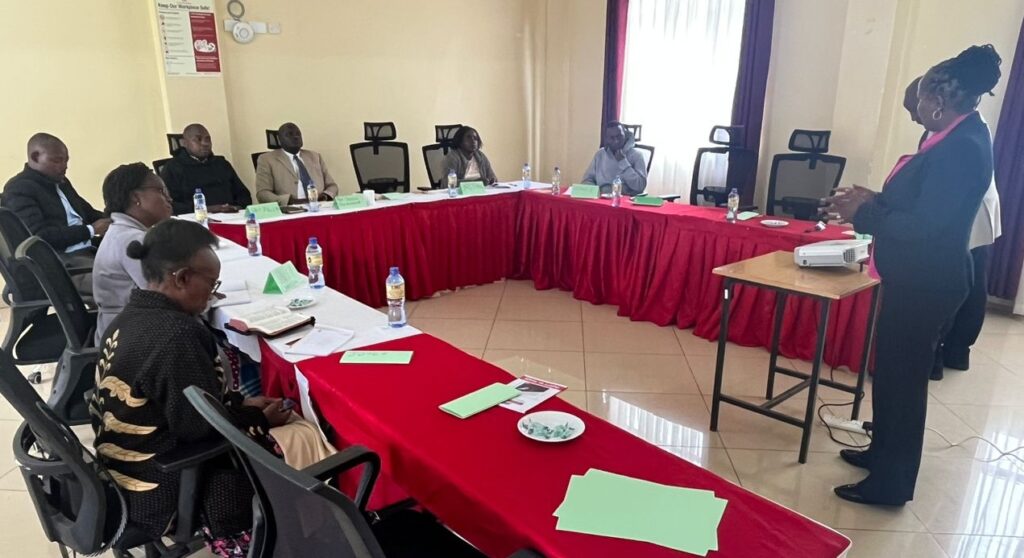
To know the truth, especially that woman was not cursed, means a whole world to him. When he is sharing in the church, weddings and other places, and he mentions that man and woman were not cursed in the garden, it causes a lot of debate. However, those who come through on the side of the truth are totally changed. In the Maasai community, it is a big deal for anyone to stop believing that a woman is not an embodiment of a curse.
Rev. Allan, from ACK Nyahururu diocese, was so happy to understand the “bone of my bone, flesh of my flesh” message of creation (see Genesis 2:23). He brought that picture to the congregation and it was absolutely amazing. Seeing yourself in your partner means that when you do them bad, you are doing bad to yourself as well. This revolutionized his life and belief system.
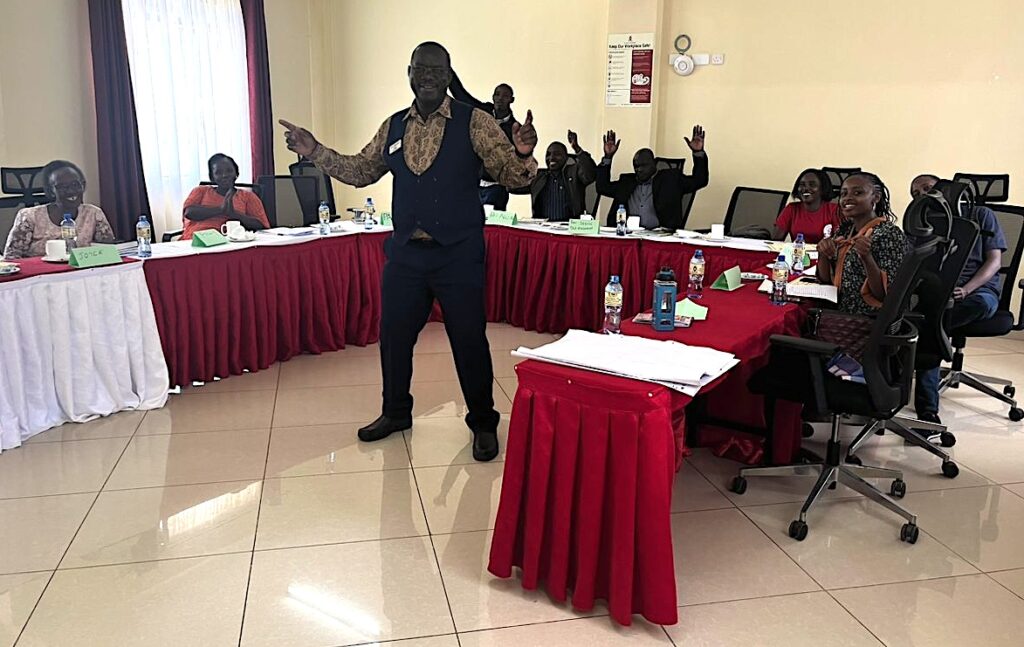
At the same time, understanding about mutual submission helped him to know how to treat his wife, and is also helping many others in a culture where mutual submission has never been heard of until now.
Patrick, a coordinator of youth activities in the ACK Diocese of Nyahururu, said he so far has 70 youth and 18 men in his groups and he is teaching them through the NMNWNL manual. He says that whenever they meet, there is always intense discussions, especially pertaining to the clash of culture and the Word of God.
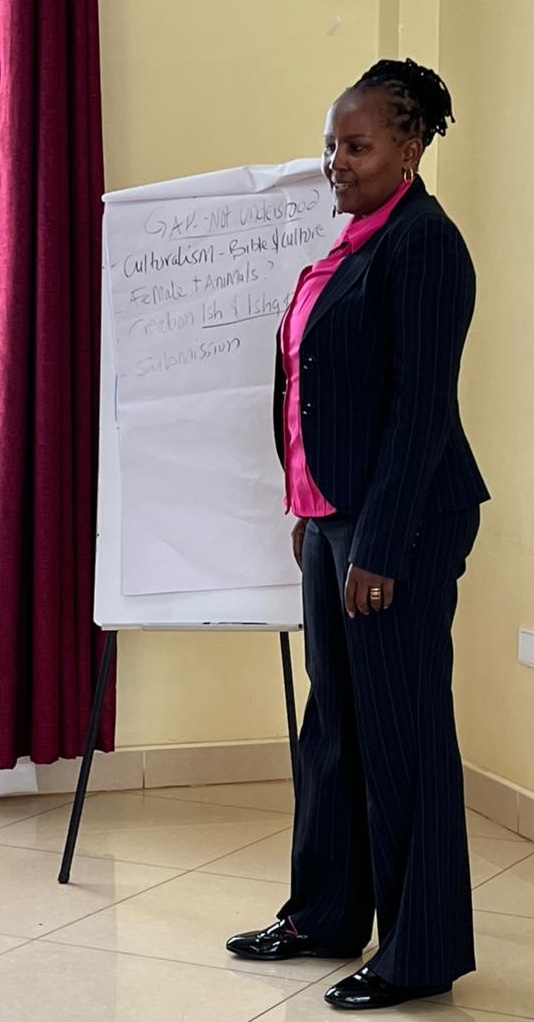
Polly Nyaga told us that attending her first seminar transformed her life, and she is now using that transformation to transform others. Of the many lessons learned, she points to three key learnings: the fact that both man and woman were in the garden, the truth that woman was never cursed, and finally, that redemption means to “buy back.” Her family is now praying together (which never used to be the case) and they use the family time to read and study together portions of the NMNWNL material.
She is also using the material in her workplace. She is working to change the mindset and belief systems there, where women are overworked, underpaid, and underappreciated. She is helping them (and the employers) to see value in these women and it is beginning to change the culture of her workplace. (Men used to say: “fear this gender that talks to snakes”…that attitude is now changing.)
Joyce Wairimu (from the Kamanis’ outreach program) made the class laugh (she is a young lady of 65 years). When the Kimani couple came from the St. Paul’s master class a few years ago, they started teaching in the church and Joyce was one of those who refused the message, thinking it is aimed at changing their culture. The more she engaged, the more she came to like to NMNWNL message, she told us, and she finally “fell in love” with it. She finally accepted the message and said “YES”! As I said before, she had the whole class laughing.
Joyce says prior to embracing the NWNWNL content, she often felt afraid to interact with people because she and her fellow women would be blamed for any mishap in the family and community. Constant abuse made her feel so inferior! But after understanding biblical equality and her true value in Christ, she now walks with her shoulders high because she now knows she is redeemed!
She is using the material and the knowledge learned from it to talk to Sunday School children, and young girls/women, to know their place in Jesus Christ and His redemptive purposes. She understood that God’s purpose for her is to be a worshipper, transformed to go transform others. She understood that redemption is continuous, the more one understands, the freer they become.

Joyce Yangu, another Social-Psychologist, is using the material to ‘psycho-educate” her audiences against societal stigmatization. She is so far reaching out to 110 cancer survivors, who have been told that having cancer is a curse. The message of redemption, especially pertaining to the redemption of women back to God’s original purpose, has brought great comfort to these cancer survivors. She is also involved with 17 teenage mothers.
Rev. John went back home with a desire to be the best version of what God wants him to be, not to compare himself with others, and to use this transformation to transform others. He says he is not going to keep silent. He is going to speak!
Patrick learned the value of understanding the Word of God in context, rather than just selecting one verse and running with it, which distorts the contextual message.
Vivian learned that God existed before culture and so, cultural practices should not dictate the way people should live, every cultural practice that is not subservient to the word of God must be discarded.
We learned a lot about these cultural beliefs as we listened to participants. For example…
Confronting cultural beliefs
Some of the resurgent cultural beliefs that are hitting the communities where the participants were drawn from (especially the Kikuyu community), is the belief that God lives on top of Mount Kenya. The original name for Mt. Kenya is Kiri-Nyaga, meaning “the mountain of God). Now , Clergy are culturally required to ask the congregation to face Mt. Kenya when they are praying (in the same way Moslems face Mecca when they are praying).
Many local leaders also tell people that culture takes precedence against the bible because the bible came “recently” and culture has been in existence since time immemorial. Even in this particular master class, it took some convincing for all participants to accept that the Bible is an Eternal Word of God. Some still believed that the culture is essential alongside the bible. It is when we explained the phenomenon of “syncretism” in detail, they understood the infallibility and the inerrancy of the Word of God.
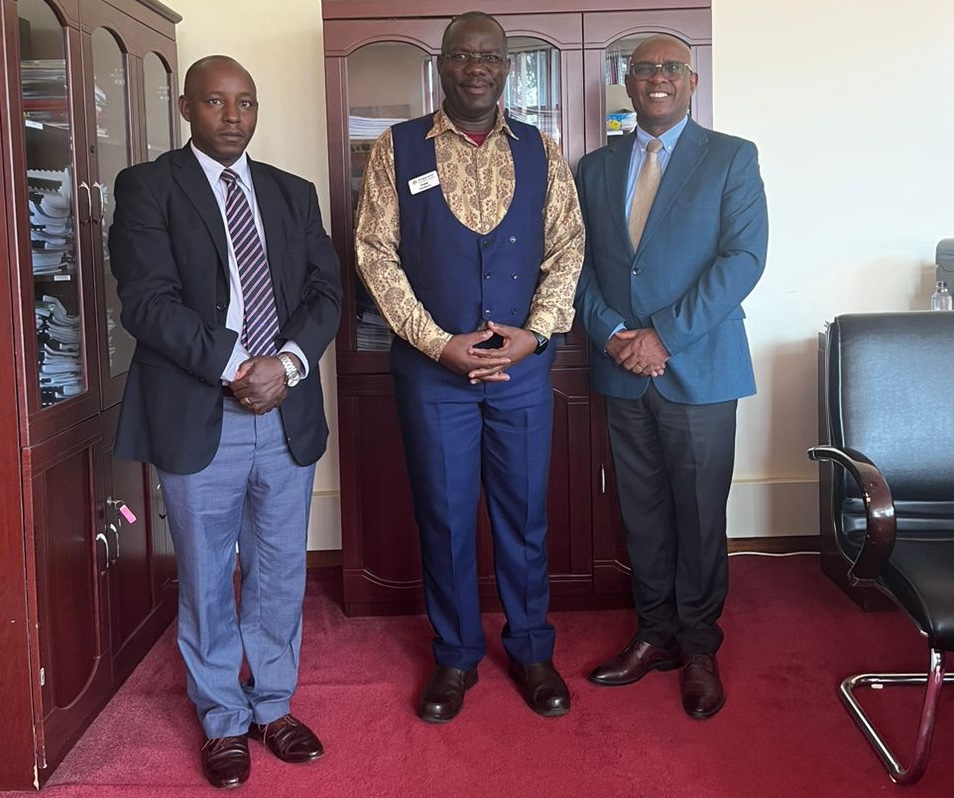
There is the resurgence of a practice known as “shedding blood,” where parishioners have to take goats and sheep to be slaughtered so that demons can be exorcised. Some clergy don’t seem to understand that Jesus’ blood is sufficient and that he said on the Cross: “It is finished.”
There is also a mix of ceremonial prayers where clergy mix with traditionalists (both praying at the same function).
The call was made to accelerate the teaching of NMNWNL to as many communities to counter these and other resurging teachings that are counter-redemption.
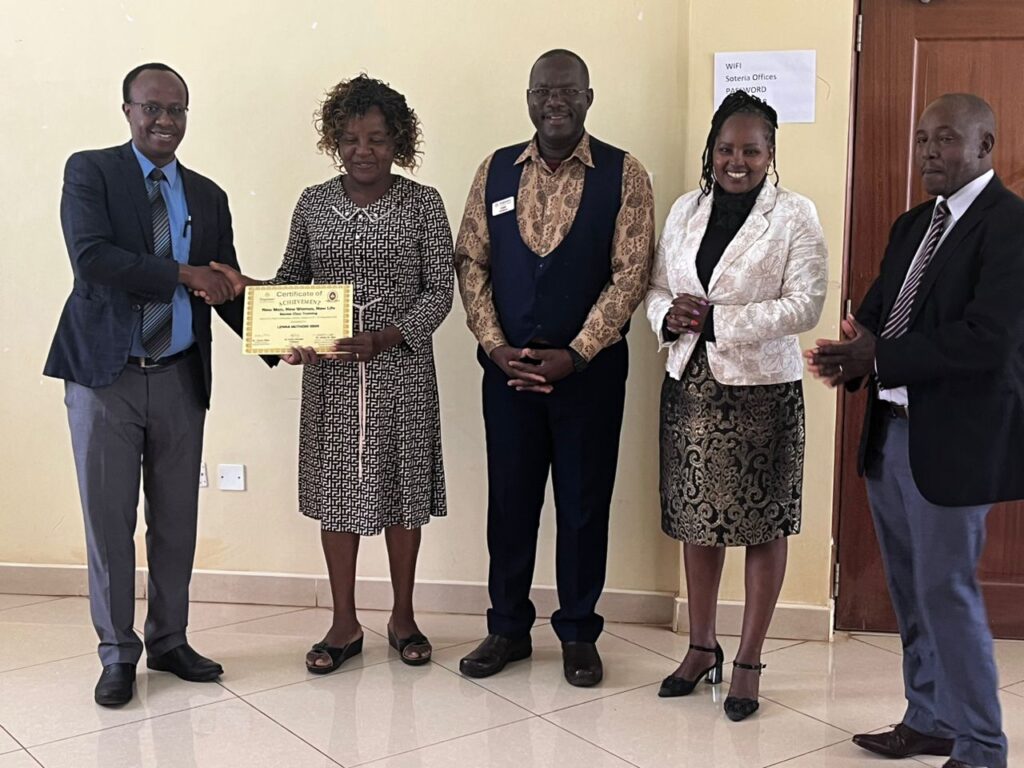
The Master Class was closed officially by Mr. Kennedy Waweru, the acting Deputy Vice Chancellor Finance and Administration, who on behalf of the Vice Chancellor and the St. Paul University’s community, appreciated the continued partnership over the years with EIM. He was happy to note that though he is new, he has heard the impact of the NMNWNL trainings at the SPUE (St Paul’s Enterprise Unit, where we normally hold our trainings). He encouraged participants to go and be used of God as vessels of honor and to use the knowledge learned to go change families and communities.
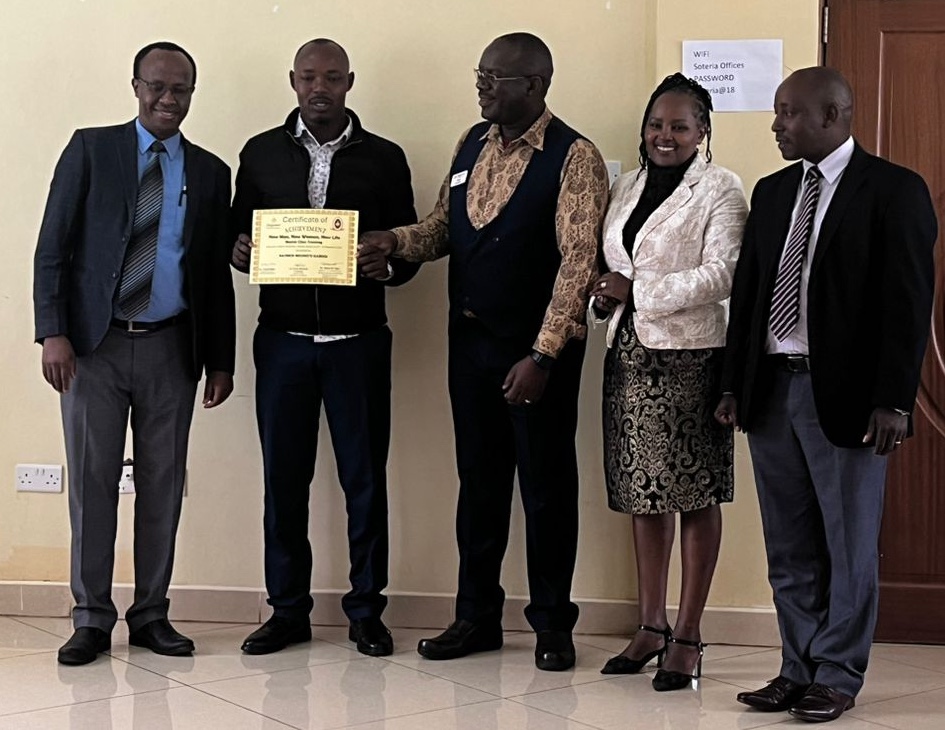
Together with Frank, Purity and Dr Njau, he participated in giving out certificates and also commissioned the participants with prayer.
What a training it was! Please continue to pray for our work in Kenya. There is obviously a hunger for truth here, and our trainings are essential.
P.S. To see the New Man, New Woman, New Life curriculum, click here.
